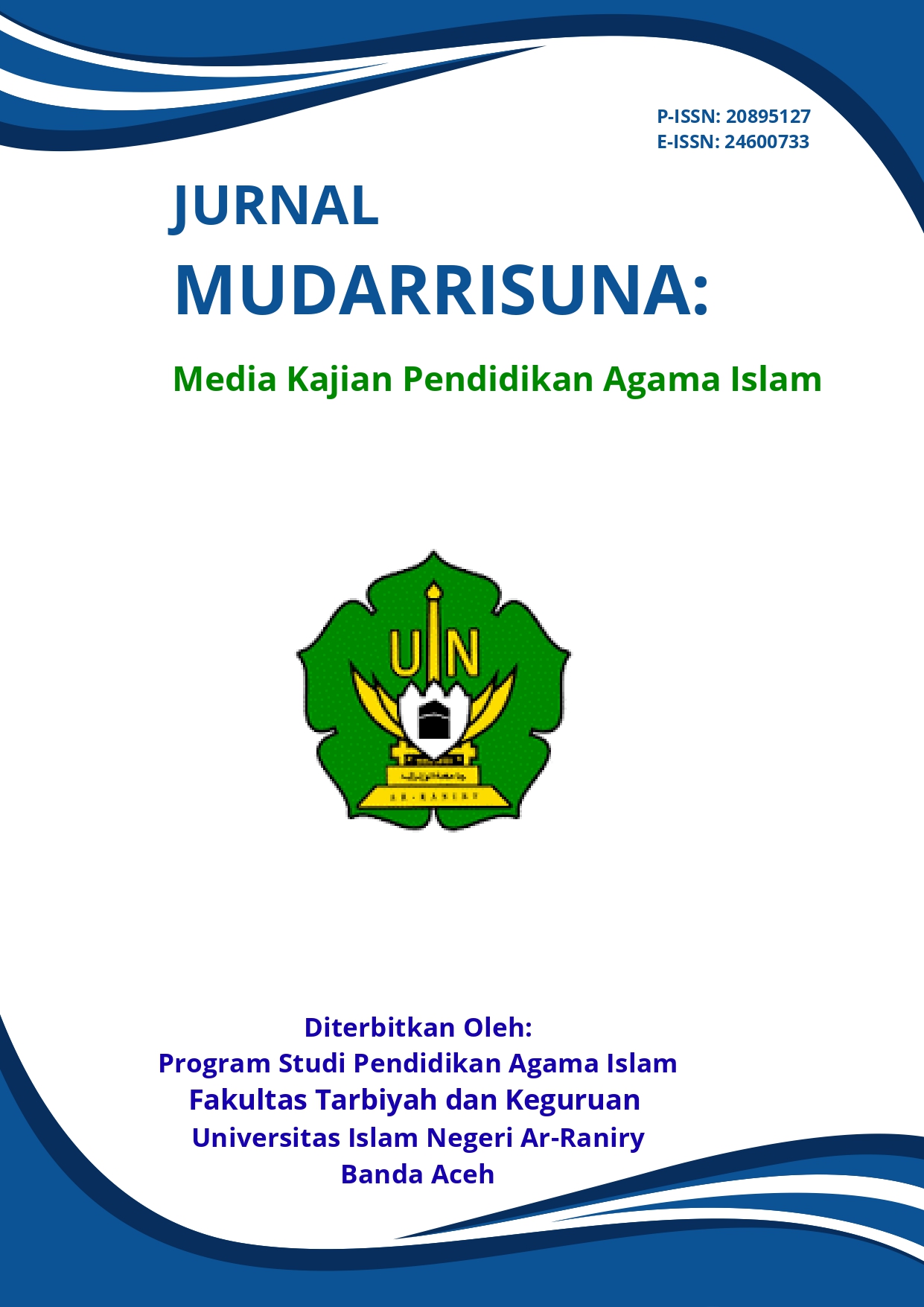Reformulasi Dimensi Kognisi Pendidikan Agama Islam Di Perguruan Tinggi Universitas Muhammadiyah Aceh
DOI:
https://doi.org/10.22373/jm.v14i4.24307Keywords:
Reformulasi, Kognisi, Pedidikan Agama IslamAbstract
Abstrak: Penelitian ini bertujuan untuk menelaah reformulasi dimensi kognisi dalam pembelajaran Pendidikan Agama Islam (PAI) di Universitas Muhammadiyah Aceh, menggunakan revisi teori Taksonomi Bloom pada domain kognitif. Studi ini mengkaji keterkaitan dimensi kognisi dengan kurikulum Pendidikan al-Islam dan Kemuhammadiyahan (AIK). Dengan pendekatan kualitatif, penelitian ini mendalami reformulasi dimensi kognisi yang meliputi pengetahuan faktual, konseptual, prosedural, dan metakognitif dalam model pembelajaran PAI. Hasil penelitian menunjukkan bahwa pengetahuan faktual mencakup elemen-elemen dasar yang harus diketahui mahasiswa untuk mempelajari disiplin ilmu atau menyelesaikan masalah dalam bidang tersebut. Pengetahuan prosedural berkaitan dengan cara melakukan sesuatu, sementara pengetahuan konseptual mencakup klasifikasi dan kategori, prinsip dan generalisasi, serta teori, model, dan struktur. Pengetahuan metakognitif meliputi pengetahuan tentang kognisi secara umum, kesadaran, serta pemahaman tentang kognisi diri sendiri. Reformulasi dimensi pengetahuan ini dalam pendidikan agama Islam di perguruan tinggi bertujuan untuk meningkatkan pemahaman dan kebermaknaan materi PAI yang diajarkan kepada mahasiswa.
References
Abdullah, M. A. (2017). Islamic Studies in Higher Education in Indonesia: Challenges, Impact and Prospects for the World Community. Al-Jami’ah: Journal of Islamic Studies, 55(2), 391–426. https://doi.org/10.14421/ajis.2017.552.391-426
Al-Halaqi, H. S. (2010). Berfikir Kreatif (Keterampilan dalam Belajar). Kementrian Kebudayaan.
Ali, M. M. (2015). The Religion of Islam. Ahmadiyyah Anjuman Ishaat Islam.
Aspinall, E. (2003). Modernity, History, and Etnicity: Indonesian and Acehnese national in conflict 1. In H. Aveling & D. Kingsbury (Eds.), Autonomy and Disintegration in Indonesia. Taylor & Francis Group.
Bustamam-Ahmad, K. (2014). A Current Portrait of Islamic Education in Aceh. Islamika Indonesiana, 1(1).
Denny, F. (2015). An Introduction to Islam. Routledge. https://doi.org/10.4324/9781315663821
Hasan, T. (2006). Dinamika Pemikiran Tentang Pendidikan Islam. Lantabora Press.
Hutabarat, E. P. (1988). Cara Belajar: Pedoman Praktis untuk Belajar Secara Efisien dan Efektif. Pegangan bagi Siapa saja yang Belajar di Perguruan Tinggi. Gunung Mulia.
Imran. (2020). Sejarah Islam dan Tradisi Keilmuan di Aceh. Jurnal Midarrisuna, 10(2).
Johnson, C., Boon, H., & Dinan Thompson, M. (2022). Cognitive Demands of the Reformed Queensland Physics, Chemistry and Biology Syllabus: An Analysis Framed by the New Taxonomy of Educational Objectives. Research in Science Education, 52(5), 1603–1622. https://doi.org/10.1007/s11165-021-09988-4
Kersten, C. (2015). Islam in Indonesia: The Contest for Society, Ideas and Values. Oxford University Press.
Makdisi, G. (2016). Religion, Law and Learning in Classic Islam. Routledge.
Rahman, F. (2002). Islam (Second Edition). Univeristy of Chicago Press.
Salim, A. (2018). The Special Status of Islamic Aceh. Routledge.
Unmuha. (n.d.). Universitas Muhammadiyah Aceh.
Downloads
Published
Issue
Section
License
Copyright (c) 2024 barmawi barmawi

This work is licensed under a Creative Commons Attribution-ShareAlike 4.0 International License.
Jurnal MUDARRISUNA: Media Kajian Pendidikan Agama Islam allows the author(s) to hold the copyright and to retain the publishing rights without restrictions. Authors who publish in this journal agree to the following terms:
- Authors retain copyright and grant the journal right of first publication with the work simultaneously licensed under a Creative Commons Attribution-ShareAlike 4.0 International License that allows others to share the work with an acknowledgment of the work's authorship and initial publication in this journal.
- Authors are able to enter into separate, additional contractual arrangements for the non-exclusive distribution of the journal's published version of the work (e.g., post it to an institutional repository or publish it in a book), with an acknowledgment of its initial publication in this journal.
- Authors are permitted and encouraged to post their work online (e.g., in institutional repositories or on their website) prior to and during the submission process, as it can lead to productive exchanges, as well as earlier and greater citation of published work.




